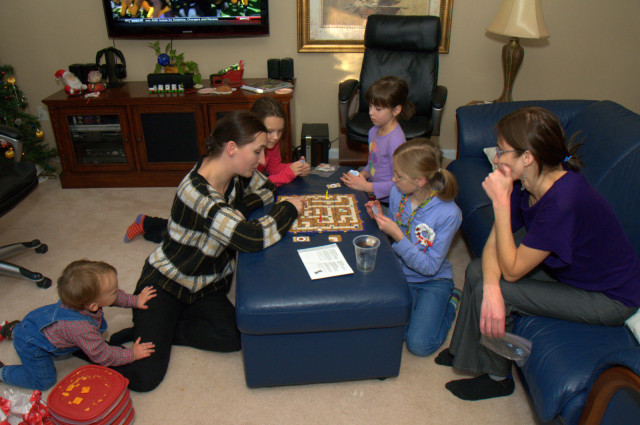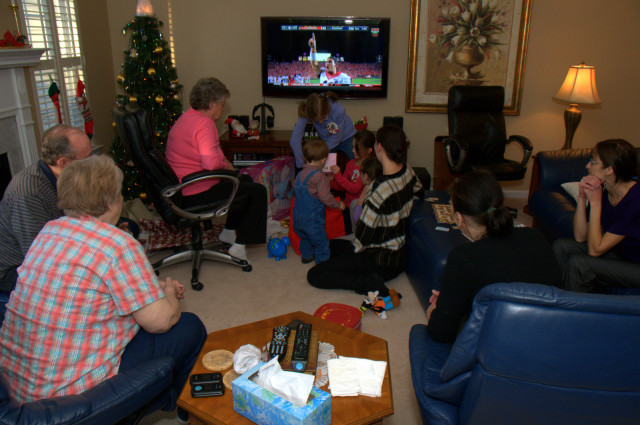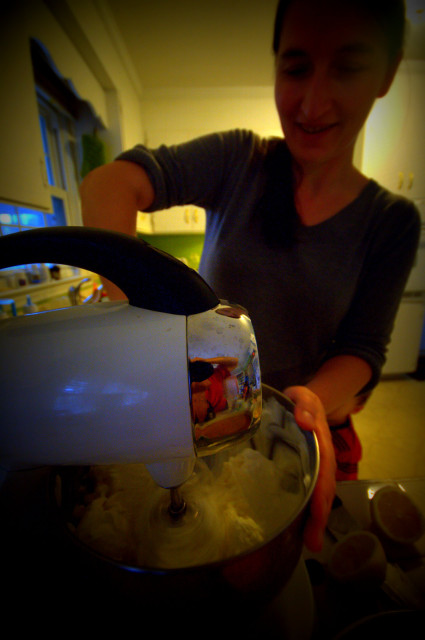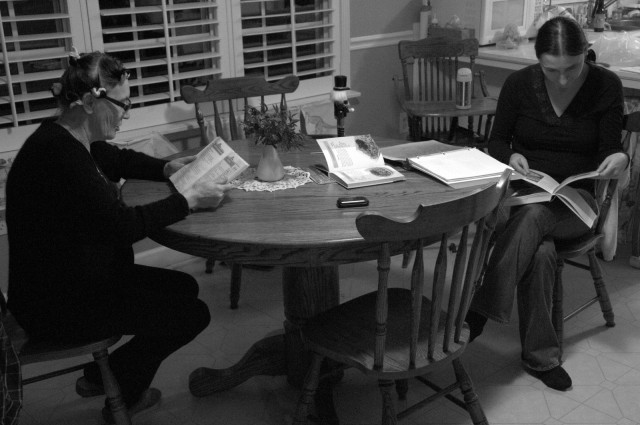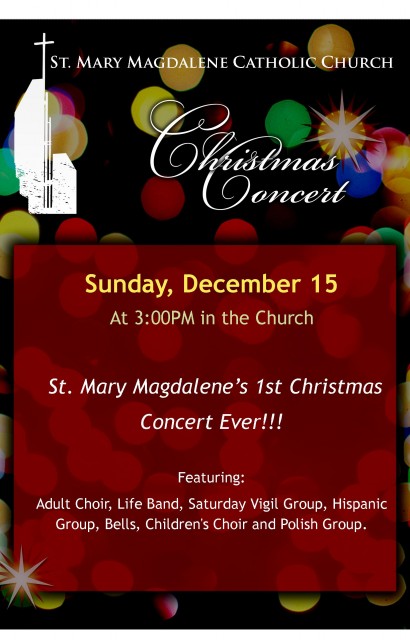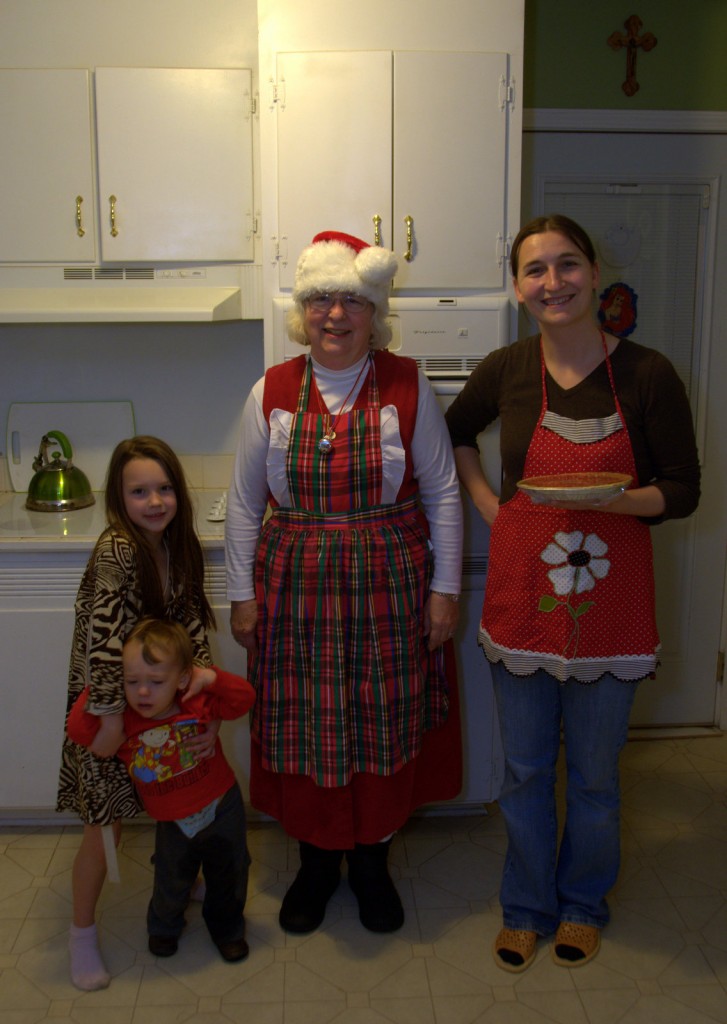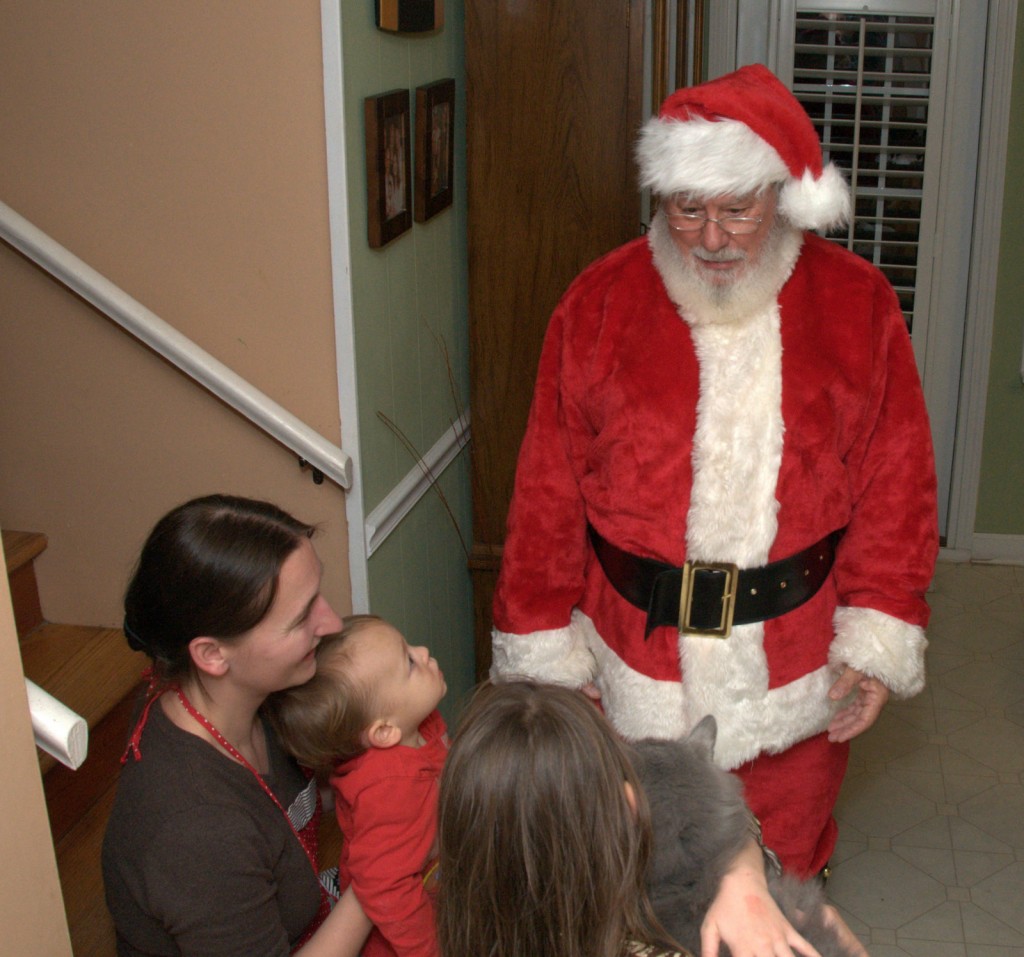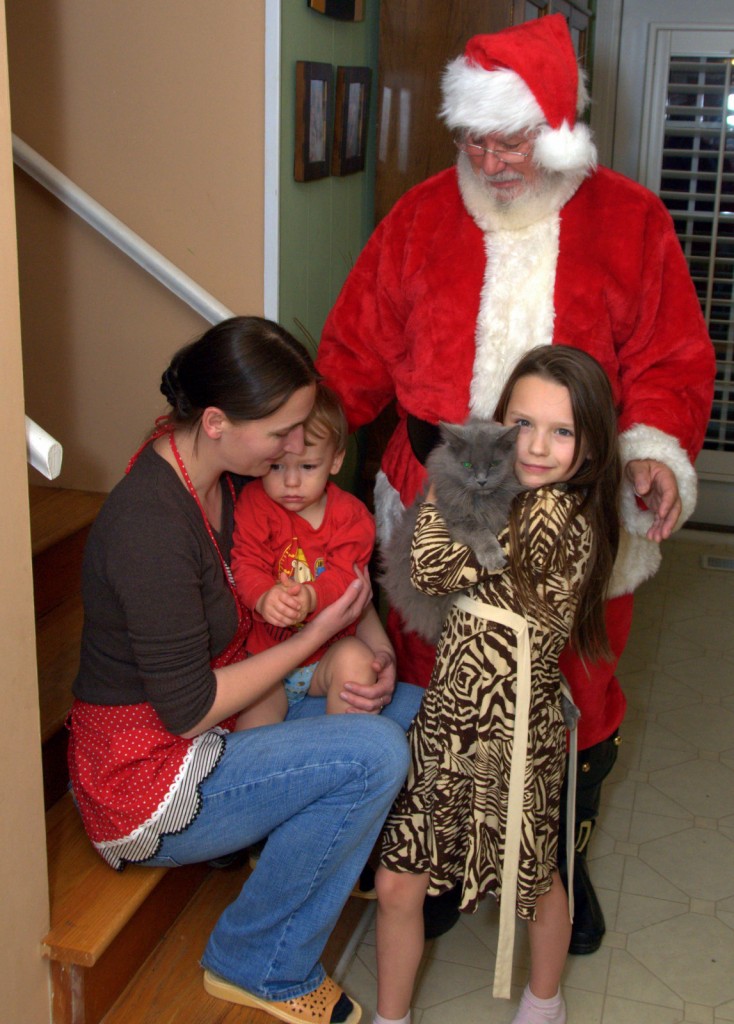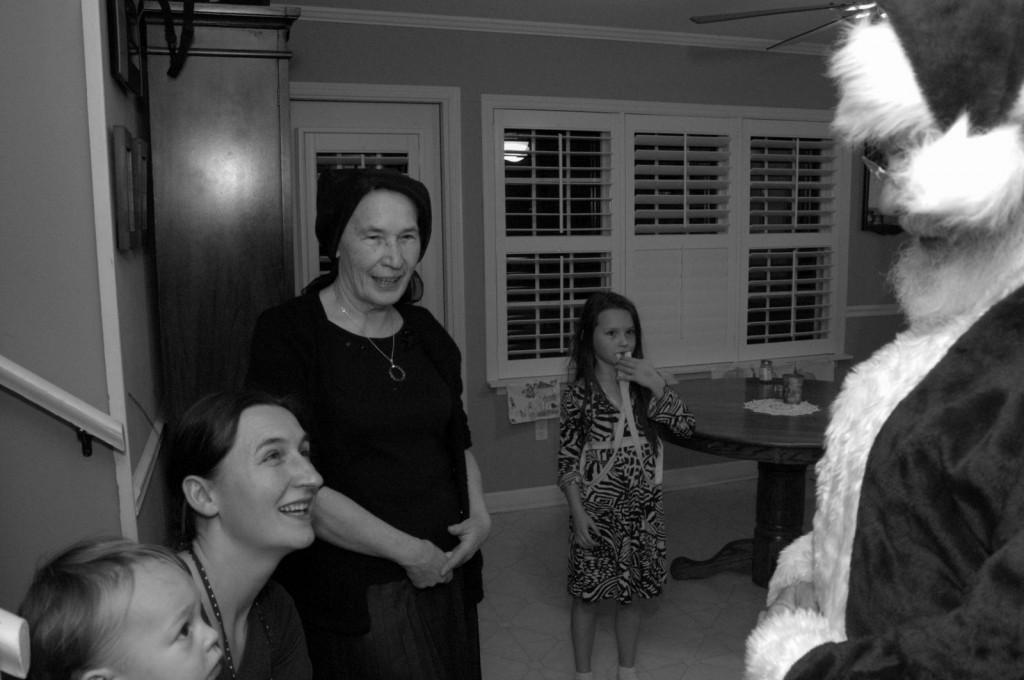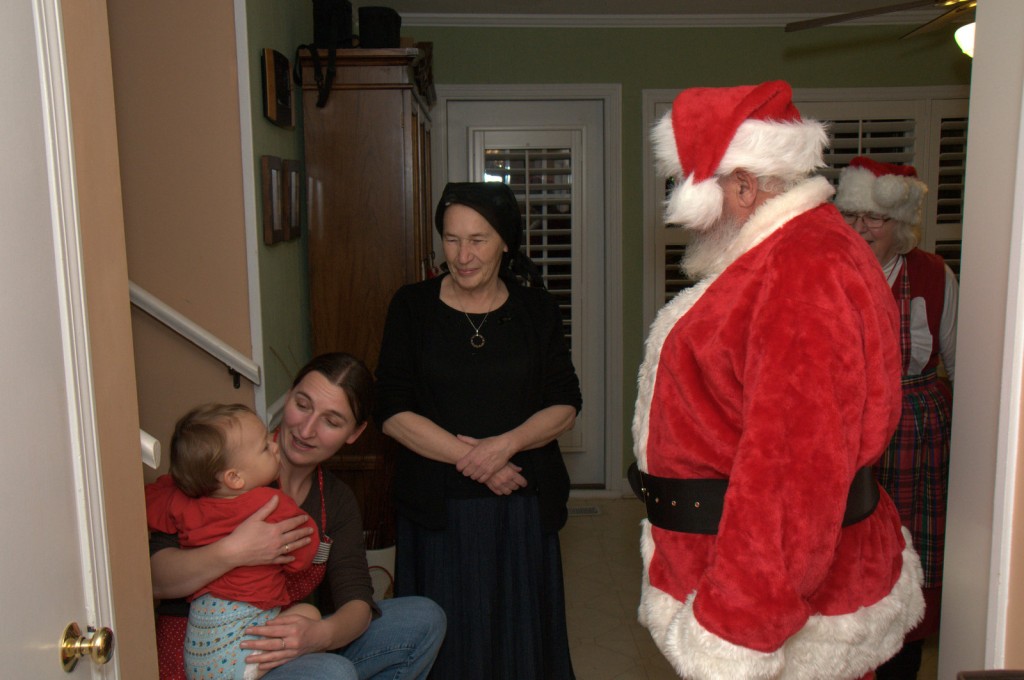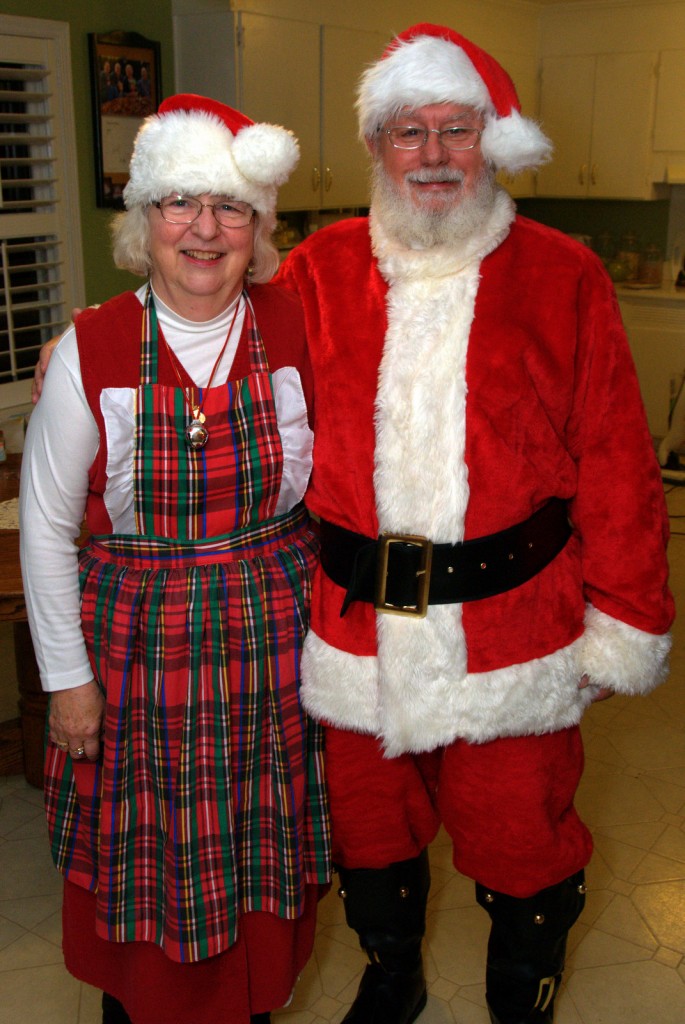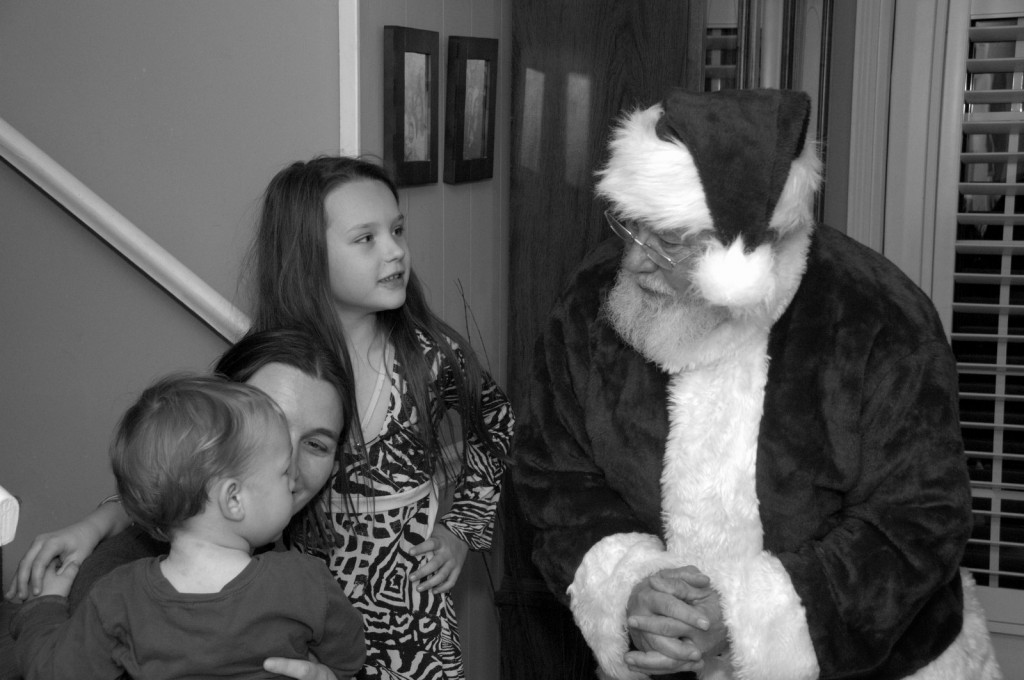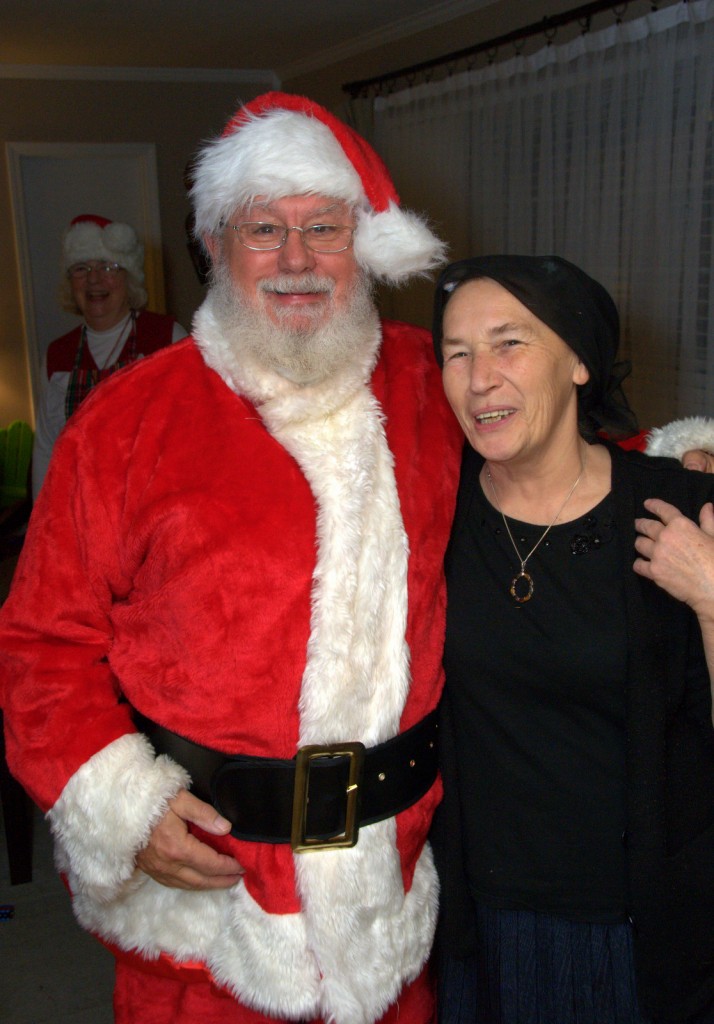St. Stephen’s Day 2013
animals facts
A cheetah can run 60 mils an hour. A leopard and a cheetah look a like but they aren’t alike. I have a cat named bida. I like cat’s.
Christmas 2013
When I was a kid, my family used to drive from southwest Virginia to Nashville almost every year for Thanksgiving. In the mid-eighties, when the speed limit everywhere was 55, it took just over six hours.
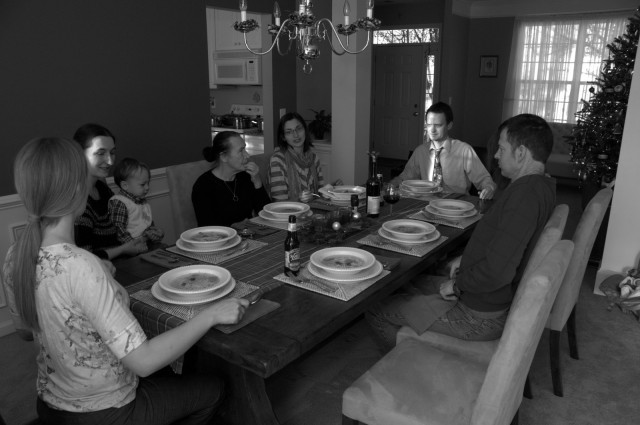
Six hours in the car for a ten-year-old was utter living Hades: it was never-ending boredom in the days before smart phones, portable DVD players, and iPods.

The trip there was bearable, for there was something to look forward to. The trip back was hellish because all the excitement had passed.
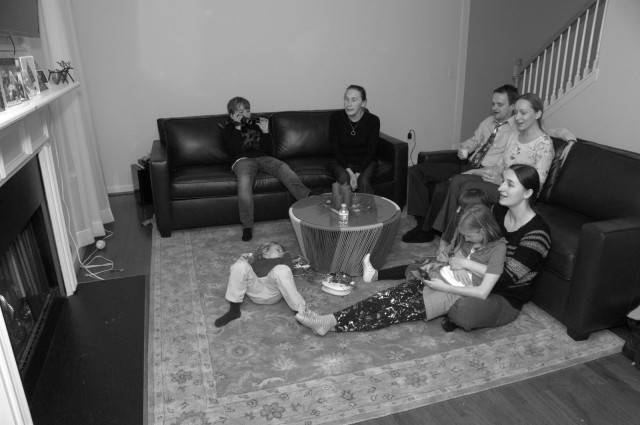
Six hours in a car — a long, long, long time.
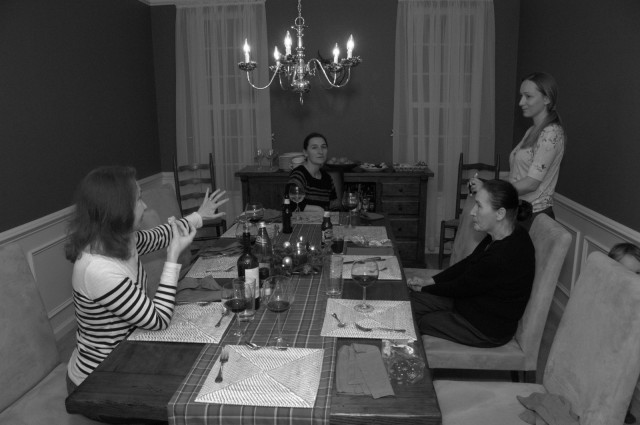
Six hours with family and good friends on Christmas day, though, passes in a flash.
God Rest Ye Gentlemen
Wigilia 2013
“You girls got to play all day yesterday; today, you’ll be helping out a lot.” Thus began the day, and thus the girls began their day of helping, much of which was more spiritual than physical. Still, transferring the clean dishes from the dishwasher and moving the dirty breakfast dishes from the table to the dishwasher was a good start
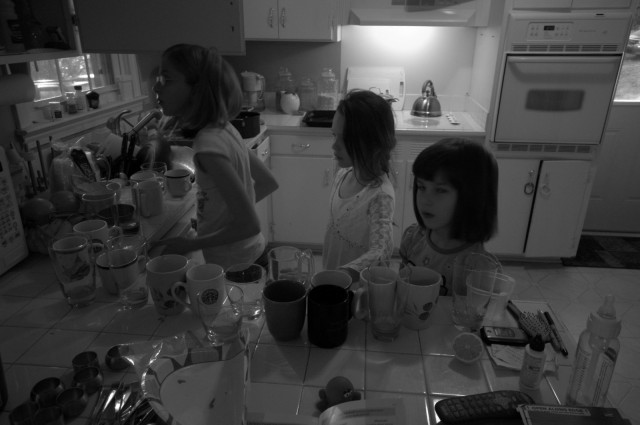
And so for a change, every year’s is not the same, at least at the start. The girls all chip in throughout the morning, taking care of the Boy as he horses about,

or cutting veggies for the Christmas morning breakfast. (How odd I used to find it that a Polish breakfast might include a salad of some sort or other; how odd I now find it that I used to find it odd.)
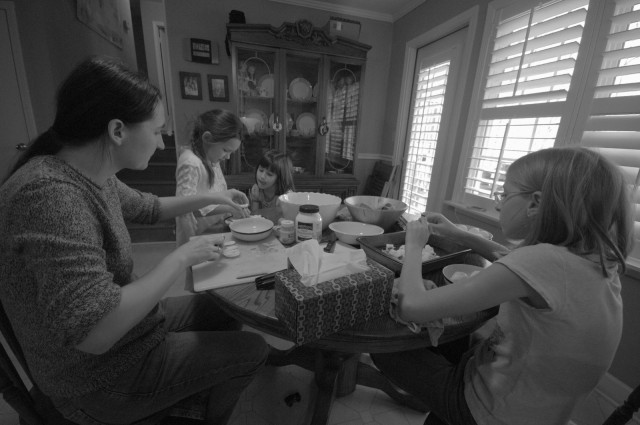
It’s always amusing to me how a little Tom Sawyering can turn anything into a game for kids this age. At one point, one of the girls suggested they go up L’s room to play. “No,” the other two replied, “we want to help.”
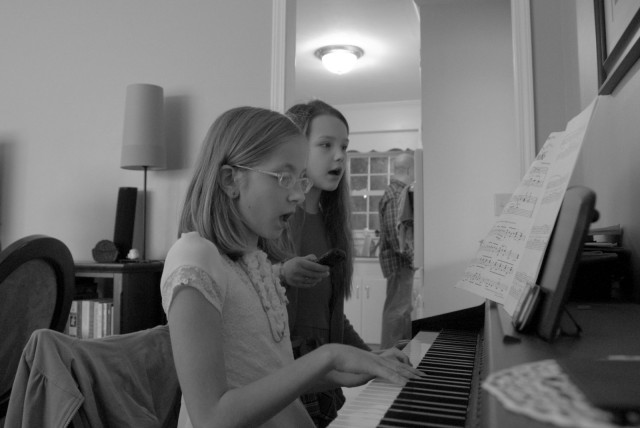
As the day turned to afternoon, though, the Girls’ help became more spiritual, less physical. T took out her holiday music and began playing for the Girls as they sang carols.
They began with “Angels We Have Heard on High,”
and followed it with “Go Tell It on the Mountain,” to which E added some avant garde accompaniment.
As we continued cutting, chopping, boiling, spicing, setting the table,
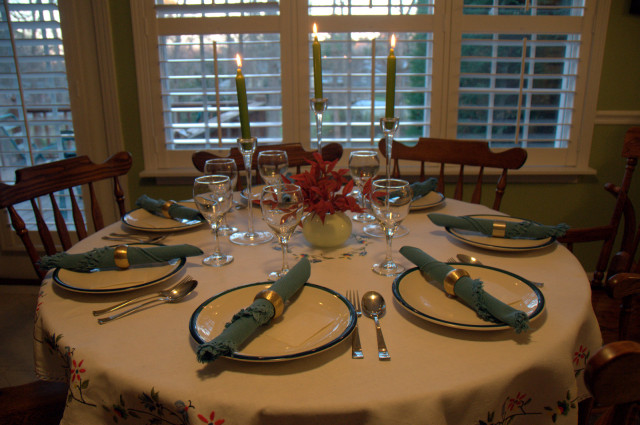
and whining, the girls performed “Silent Night,”
and moved quickly to a very interesting arrangement of “Jingle Bells.”
Of course the girls wouldn’t be The Girls if they didn’t add something silly to the mix. T sat this one out, but C and L had great fun recording their version of “We Wish You a Merry Christmas.”
By this time, though, it was time to stop with the silliness and get started on the main courses for the evening. I went out to fire up the grill and the Girls all transformed. The Boy waited though. “He’s still wiping his nose on his sleeve,” K explained. “We’ll wait with him.” And so picture-perfect girls bounded about the house while I grilled salmon, fried an improvised invention (oyster and crab cakes, which I think I’ll try again), and Babcia looked on with a smile.
Once Nana and Papa arrived, the rest of the evening went by in a blur. We began as always: Papa read from the Gospel of St. Luke, chapter 2.
I scooted about, taking pictures, directing L to stop messing with E and listen to Papa, and generally worrying that the crab/oyster cakes might not be as tasty as I imagined.
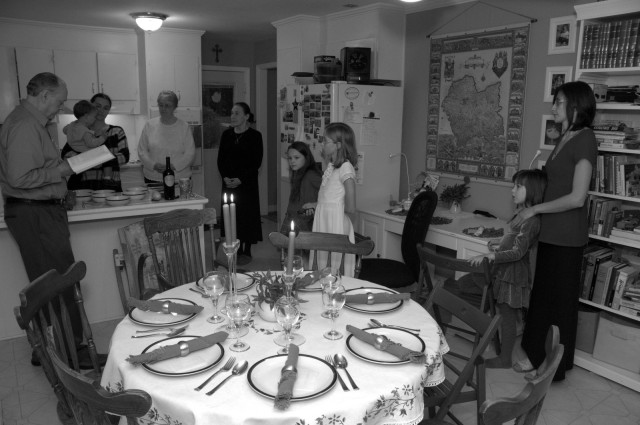
The dinner itself went by in a blur, which is always the case, and I always find it somewhat tragic. So much time spent preparing barszcz z uszkami, crab/oyster cakes, mushroom soup (where did those mushrooms come from? surely not Poland!), cabbage and mushroom pierogis, salmon, potatoes, and salad, cheese cake, Polish sweets, and a million other delicacies and it’s gone in about an hour. We try to slow down; we all comment on the tragedy of it all; and every single year, we all inhale it. This year was no different, which is both a complement to the chefs and a sad illustration of how quickly we all tend eat.
For the kids, though, it was normal: there was only one thing on their minds. The presents.

So we moved to the living room, listened to more caroling,
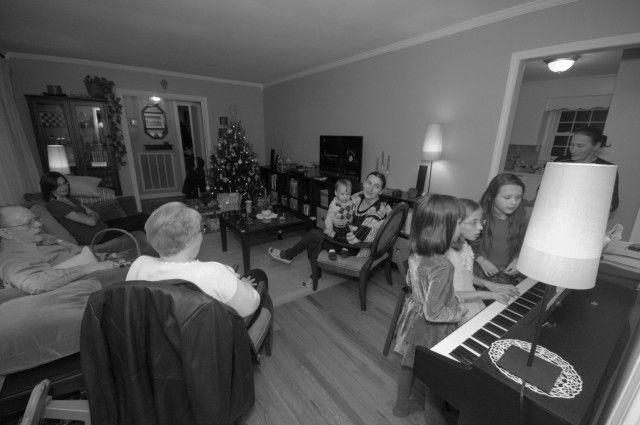
and eventually began opening presents.
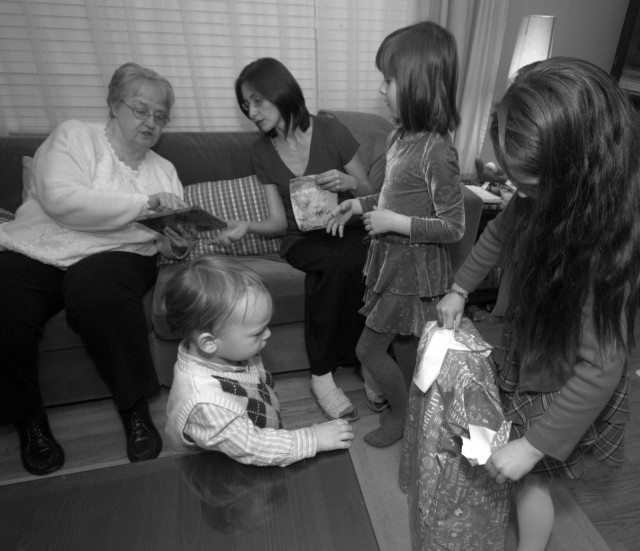
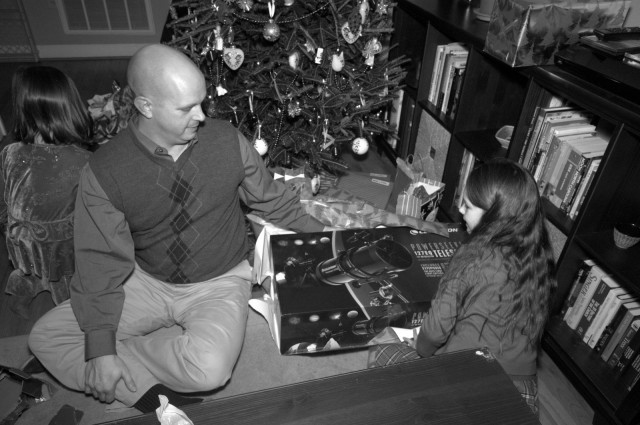
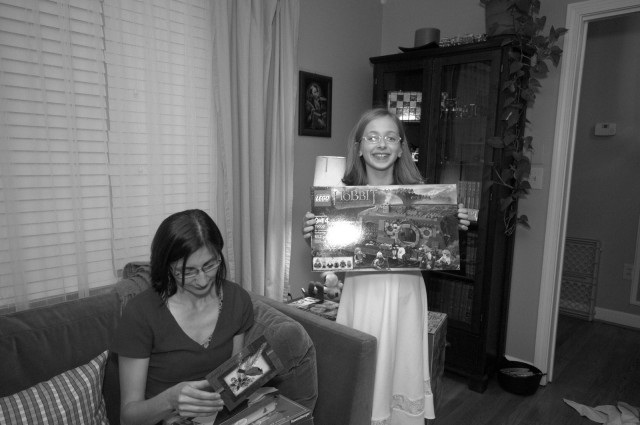
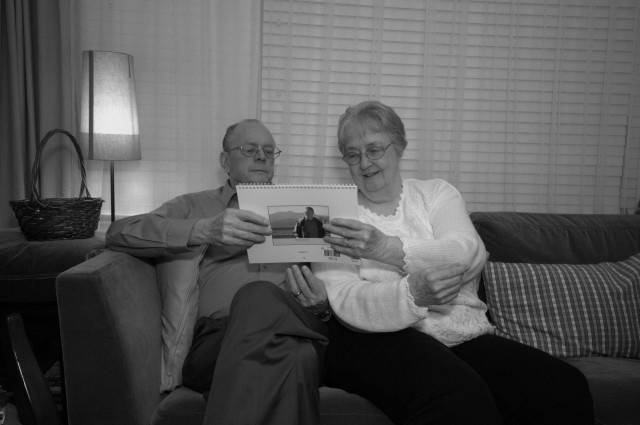
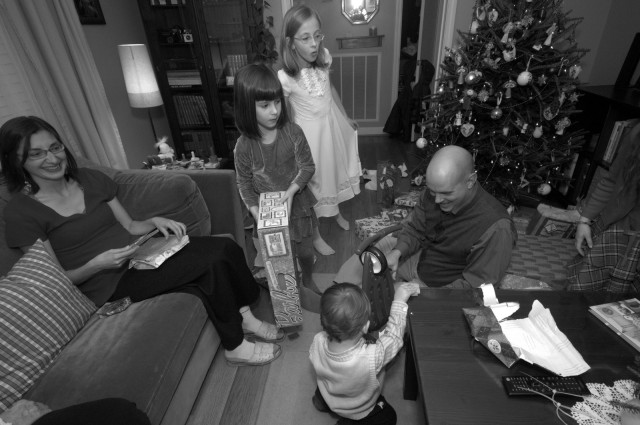
We tried out some of the gifts
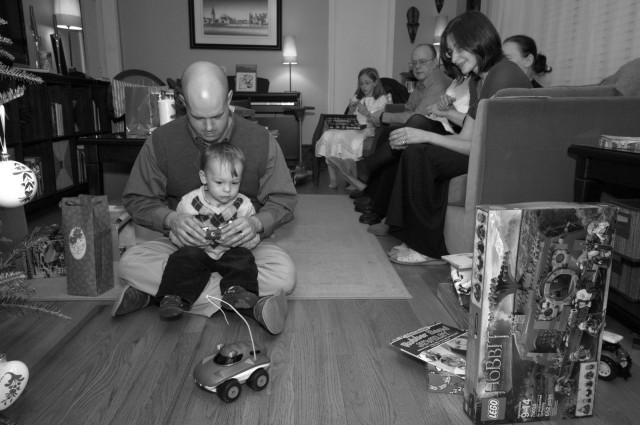
and lamented and celebrated that such an evening occurs only once a year.
Previous Years
Wigilia Preparation
By the time we’re almost ready to sit down at the table, I’ve made at least six or seven trips to the compost bin. Eggs shells from the boiled eggs for the salads, limp, cooked vegetables from the stock for various soups, peelings from potatoes, carrots, and parsnips, all taken out to the compost bin, which I then turn with a pitchfork, letting oxygen in, steam out, to begin the regenerative process. In time, all of the cast off material will break down to near-elemental form and it will all serve as nourishment for tomatoes and raspberries, squash and snap peas, and whatever else we choose to grow next year. All we have to do is wait.
Pre-Wigilia Messes
Jasełka 2013
He’s always there, year in, year out. There’s always a special seat for him set out in the front middle, and while he’s likely to sit in the chair for some time, he’ll often move over to the side and watch the parish Polish group put on their Christmas program.
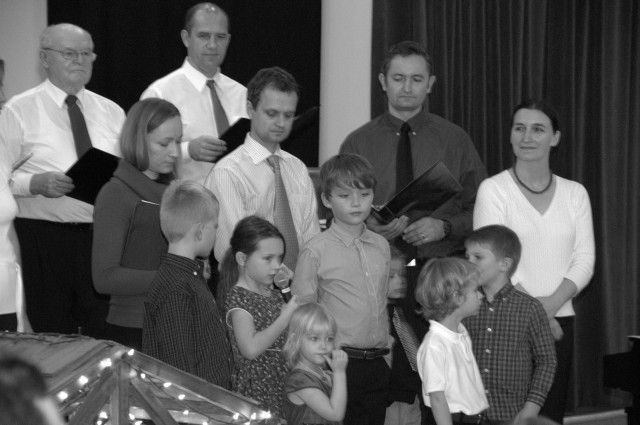
He’s a polyglot, but he has only very limited Polish in his linguistic arsenal. He can greet people, say the Hail Mary, and thank people.
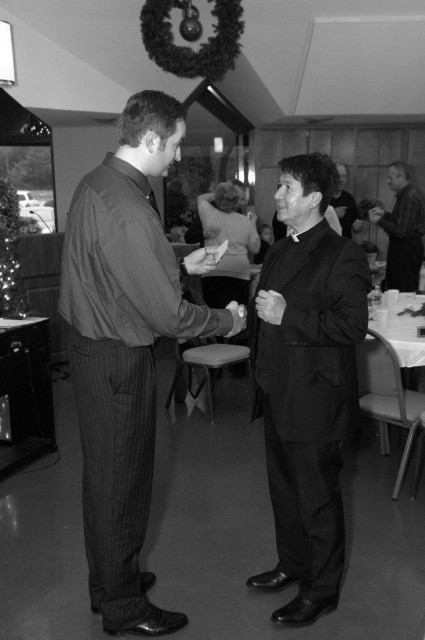
Yet his passion for Poland and all things Polish is never wavering. Among the gathered Poles, with his small stature and dark complexion, he stands out. As Polish parishioners offer each other they opłatek in the Polish wafer tradition, he stands smiling and watching until someone realizes he’s been left out and brings him over a square of the wheat-and-water wafers, explains the tradition, then offers the square of bread. They break off a piece of each others’ bread, wish each other well, and Fr. Theo’s smile grows even bigger.
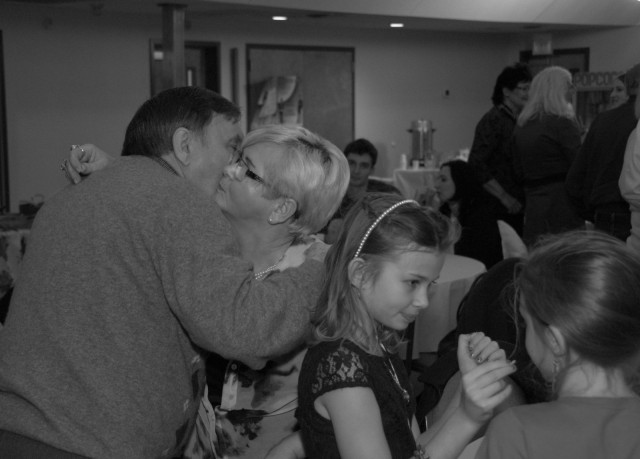
He turns to watch everyone around him, shuffling among friends, opłatek extended, smiling, hugging, kissing.
In her NPR piece, Sarah Zielinski explains what Fr. Theo, an immigrant himself from Columbia, initially was missing:
Nothing says “I love you,” at least in my Polish-American family, quite like the sharing of a thin, flat, tasteless wafer called an oplatek at Christmas. […]
“For us, Polish Americans, the opłatek, that wafer, is Christmas Eve,” says Sophie Hodorowicz Knab, author of the book Polish Customs, Traditions and Folklore. “It defines people’s heritage.”
It’s a cultural thing, to be sure, but it somehow goes beyond that. That simple sharing of bread makes a family of just about any group of gathered Poles.
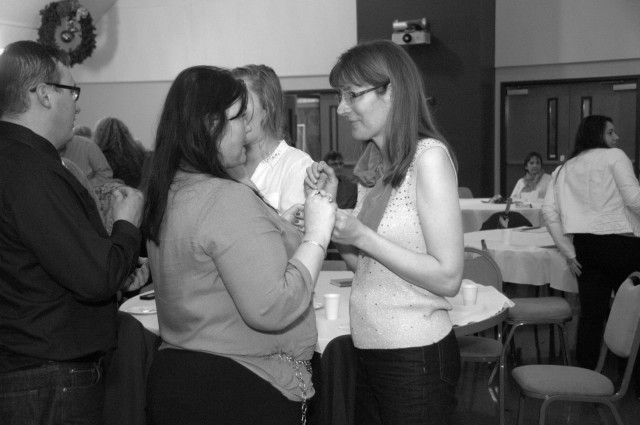
It’s a phenomenon I’ve witnessed myself many times in Poland. Even students who didn’t particularly like each other shared with a smile their little squares of dry bread without a hint of animosity or hesitation. Of course our pastor hasn’t see all those experiences: this is his first experience, to my knowledge, with the tradition, with us, this Sunday.
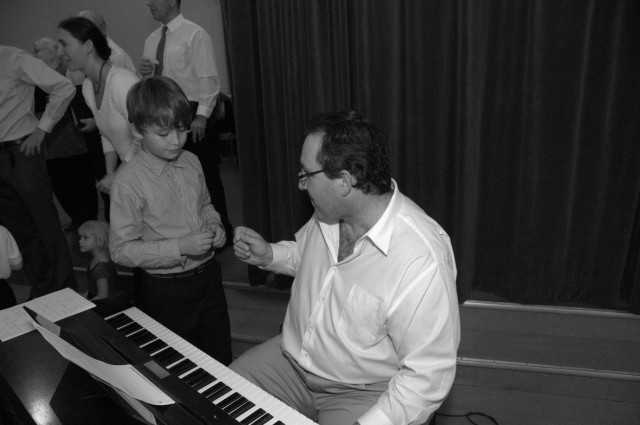
Everyone seems eager to share with Fr. Theo, and he seems equally pleased to share with everyone else. In a sense, many are strangers, but that’s the beauty of the opłatek tradition: no one stays a stranger for long.
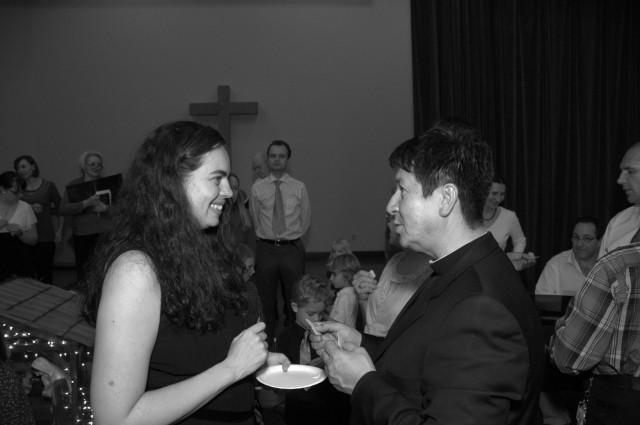
Afterward, I ask him what he thinks of the tradition. “Beautiful. Absolutely beautiful.”
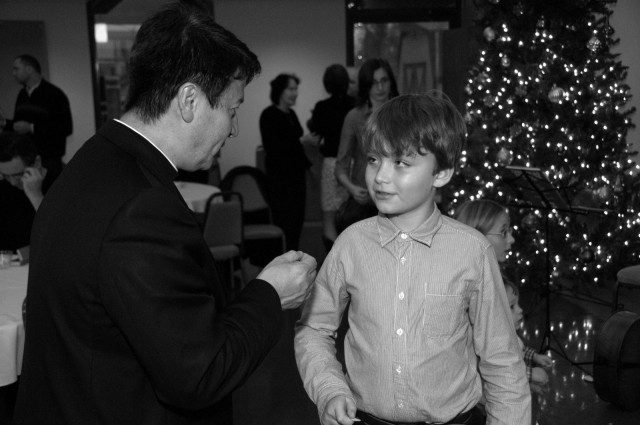
The choir begins singing again, though, and I leave Fr. Theo to shoot a few more pictures and let him enjoy the music in peace.
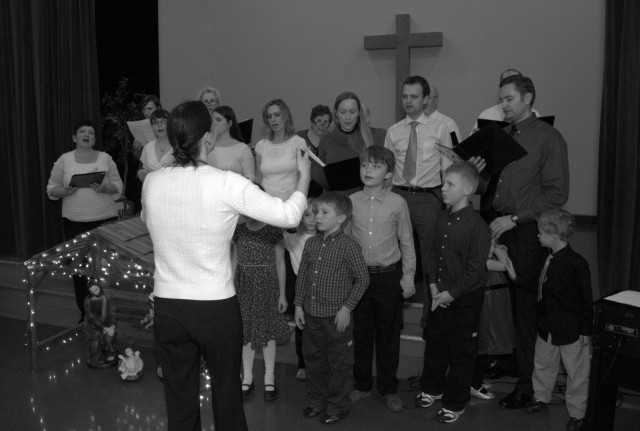
This is the fourth, the fifth time the local Polish community has held its jasełka at St. Mary Magdalene Catholic Church, and it’s the fourth (or fifth?) time that Fr. Theo, the pastor, has been there.
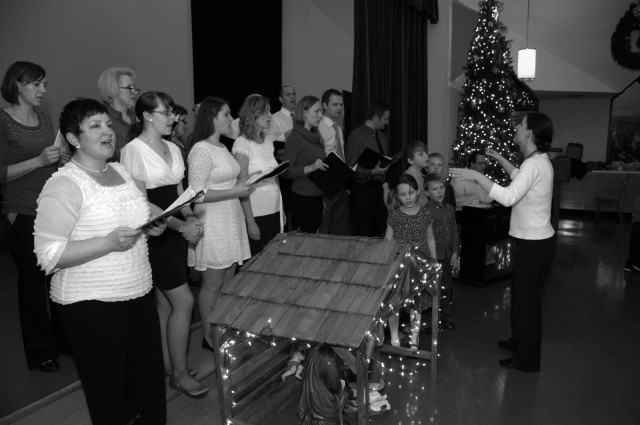
As K, the informal Polish choir director (or probably more likely, formal at this point) leads the choir through its final carol, Fr. Theo takes the mic to address everyone.
“You thank us,” he smiles, “for having this here, but we are the ones who are blessed.”
“That Sounds Good”
Christmas Concert 2013
It was undoubtedly a long time in the making: I know from K’s own time preparing for the concert that this year’s Christmas concert at St. Mary Magdalene Catholic Church — the first but likely not the last — required a lot of effort from a lot of people. Most obviously there were the choirs:
- Adult English choir
- Children’s English choir
- Adult Spanish choir
- Children’s Spanish choir
- Life-Teen choir
- Polish choir
- Filipino choir
Then there are all the accompanists, all the directors, all the support personnel. That’s not even mentioning the individuals creating promotional materials and those coordinating it all.
In the end, parishioners were treated to two hours of music in four languages. Of course the highlight for this household was the Polish choir.
The rest of the concert wasn’t half bad either.
The musicians even prepared a version of “Carol of the Bells.”
In the end, a standing ovation for everyone and a potluck supper for the hungry performers. The first, likely not the last.
